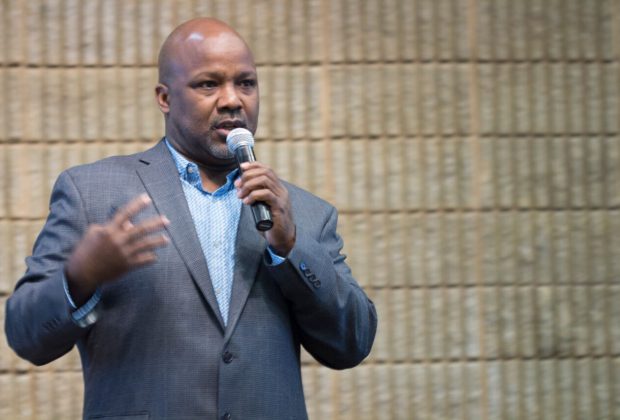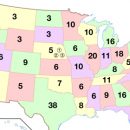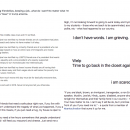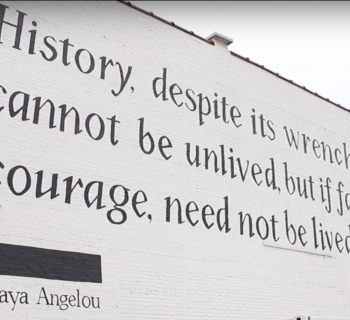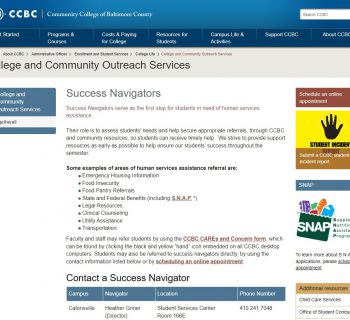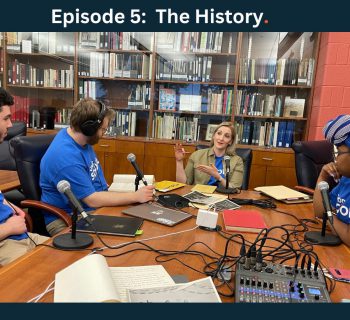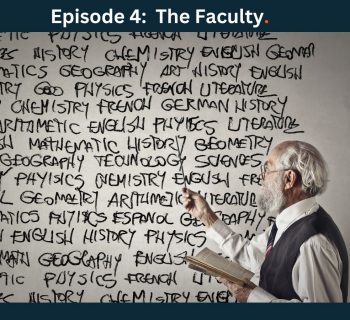Rebecca Wireman
The Maryland Communication Association held their 32nd annual conference the morning of October 22nd on the Catonsville Campus at CCBC. Friday night kicked off with a reception and the Saturday conference was full of engaging talks regarding politics, careers, and students.
Communication studies Professor Sherry Tucker coordinated the event and provided everyone with a delightful breakfast and later held a raffle during lunch where people had the chance to win some really fun gifts. The day was broken up into several sessions in classroom type settings. The conference was well organized and everyone was enjoying each other's company, thoughts, and contributions.
The upcoming election and heightened activism in the past few years across the country has spurred conversations and mediums of communication unlike anything in the past. Students, staff, professionals, and MCA members used this conference as a means to discuss important topics surrounding the current state of our political climate and what types of careers students could obtain in the communications field.
After an opening from MCA President Dr. Jayne Cubbage held in the Center for the Arts, founder J.C. Faulk of the community organization “An End to Ignorance” and “Circles of Voices” delivered a powerful and thought provoking keynote speech. He covered themes such as “what it means to be an activist,” oppression, social media and how we need to create spaces where we can talk neutrally about our differences in order to find common ground.
Faulk started “Circle of Voices” with 12 people in his house last year and after the death of Freddie Gray it increased to 80 people. That number rose to more than 2000 people in the past year wanting to be involved with his movement of change in the community.
“We make change happen not the people at the top, you have so many tools right now to make your voice heard,” Faulk says. “Change needs to be consistent and you need to show up.”
Faulk is now looking at making global connections with Canada and Australia which shows how one small group or action can reach people on an international scale.
Students attended sessions throughout the day including presentations conducted by the Honors Fundamentals of Communication classes that came from each CCBC campus, a workshop titled “Operation POTUS,” and a career panel held in the afternoon. The morning sessions were held in the Mathematics and Science building and the afternoon sessions were held in the Center for the Arts.
The groups of honor students from Catonsville, Essex, and Dundalk conducted research on various topics that link to politics and opinions of students on campus.
The Catonsville group used focus groups made up of students in order to talk about issues surrounding gun control. Surveys were given out around campus by the Essex group to see what factors play into the way students look for and receive their news. The Dundalk group conducted a survey during the conference session about the campaigns of each presidential candidate which was followed up with a cordial discussion where everyone’s voice could be heard.
The discourse brought by the Dundalk group fostered many opinions towards the campaign trail but that didn’t stop students from holding the utmost respect for each other. This kind of communication is a result of having a place where people don’t think they are going to be attacked. Most opinions are shared through social media and many of us often don’t have the chance to experience a setting like the MCA conference where people are face-to-face with so much diversity.
Professor Talisha Dunn-Square of Bowie State University began her workshop with an interesting quiz involving photographs of different presidential candidates and what each student remembers specifically about their campaign. Aside from Bernie Sanders, no one in the workshop could remember the slogan of any of the candidates which lead the group into a talk about integrated marketing communication and its importance.
This concept links together all aspects of marketing, branding, advertising, and public relations which are pertinent to any candidate who wants to make themselves known and secure their space in the White House. Students in the workshop developed their own integrated marketing strategy for presidential candidates that could possibly run for president in the future such as Michelle Obama. Planning is everything when executing a successful campaign, starting a business, or expanding an organization.
The career panel convened and gave students an opportunity to hear from professionals who work within the realm of public relations, marketing, and advertising.
President Dorothy Fuchs of Purple Dot Public Relations serves clients in the hospitality, tourism, and nonprofit industries. Fuchs says, “Nonprofits are a great place to start working in public relations.” Since nonprofit organizations don’t consider money to be their ultimate goal, they’re key players in ensuring social movements that meet the needs of many demographics.
Senior Social Media Specialist Katie Roberts discussed how having a background in technology and marketing is really useful for acquiring a job in communications. Roberts works for Crosby Marketing Communications which is a integrated marketing, advertising, and public relations firm. The company supports many health care practices, nonprofits, and government factions and Roberts works to make sure there is balance and access between Crosby and the public.
The final speaker was founder Bobby Gillespie of The Creative Foundation. Gillespie worked for a number of companies until he finally found his niche in graphic design and branding. Originally from Philadelphia, Gillespie found himself taking a job in Baltimore but eventually met someone who opened the door for him and finally brought him to starting his own business.
“Networking is so important and Baltimore is built for it,” says Gillespie. Many of the clients he designs logos for come to him because they’ve been referred by other clients of Gillespie.
Gillespie also shared a book of graphic design work he’s created over the years and explained how that book speaks for itself when meeting with new clients. Gillespie says, “Care about what you’re doing ‘cause your reputation will follow you.”
Students who want a career in marketing, advertising, public relations, or branding must learn how to make a name for themselves and connect with as many people as possible. These types of jobs take a lot of individual effort that is then brought together by a team of people that take their job seriously.
The efforts and achievements made possible by this year’s MCA conference organizers was beneficial to all students that attended. Next year’s MCA conference will be hosted by the College of Southern Maryland in LaPlata, Maryland. Students who want a career in communications or want to make major changes in their local community should look for more organizations like the MCA that promote working together.


